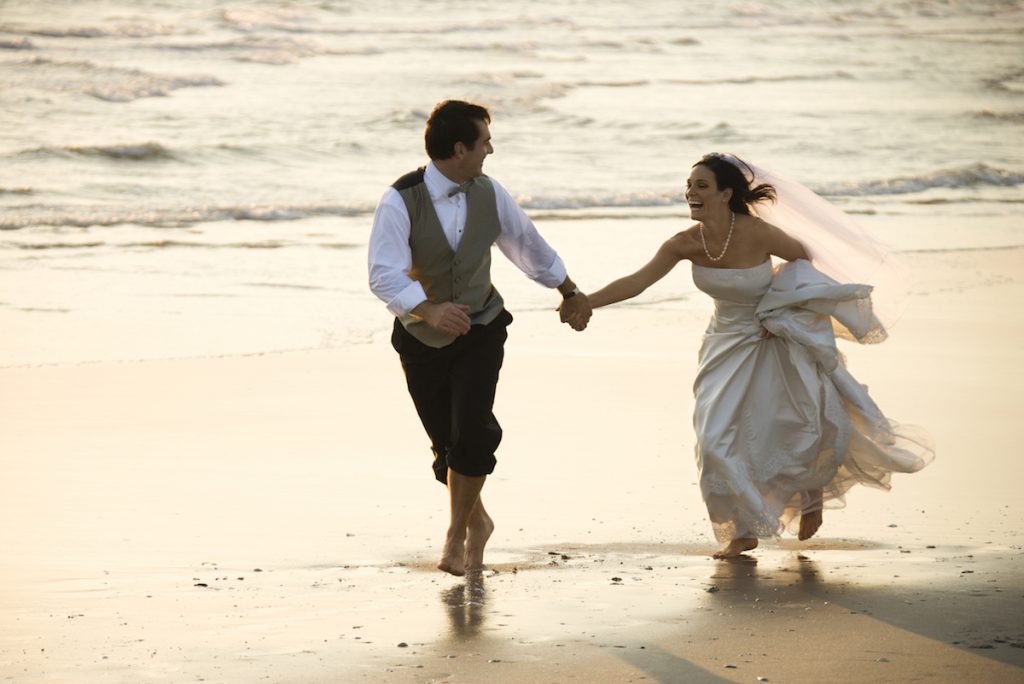“Marriage is a duel to the death, which no man of honor should decline.”
Like many of G.K. Chesterton’s aphorisms, this line illuminates—and then perplexes. It is a wonderful utterance from a character in Manalive, and many readers will feel that it has got something right.
Yet, on further reflection, it is confusing. Who are the duelists? If they are husband and wife, then the saying becomes grim in a decidedly un-Chestertonian way—he cannot have meant to praise the ugly conflicts that make too many marriages miserable. And even if we take him to only mean romantic sparring, that would still be exhausting and myopic if indulged to the extent suggested. Spouses may at times flirtatiously contend, but marriage also has a lot of mundane work—doing laundry, making dental appointments, washing the dishes, and so on. To describe that joint effort in life as a duel would seem to miss the point. Furthermore, Chesterton surely did not mean that unmarried men, including the priests of his own Catholic faith, are all dishonorable.
Nonetheless, Chesterton’s line resonates as more than a prettily turned but nonsensical phrase in one of his fantastic tales. I believe that this is because for men marriage is indeed a duel to the death, not against one’s wife, but for her. Our traditional marriage vows are quite as romantic as any oaths a story-book knight ever took. For richer and for poorer, in sickness and in health, forsaking all others, till death do us part—these vows are a defiance of all the world, if it comes to that. The duel is not with one’s wife, but with potentially everything and everyone else, including oneself. The quest to faithfully live up to one’s vows is arduous at times and joyous at others, but the measure is not distributed equally. Adhering to these promises may bring terrible suffering.
Start your day with Public Discourse
Sign up and get our daily essays sent straight to your inbox.Such is the risk of love.
As C.S. Lewis reminded us, “to love at all is to be vulnerable.” Loving another person means giving oneself as a hostage both to fortune and to an alien will. The traditional Christian marriage vows are explicit on this point: one is promising to remain married for worse, for poorer, and in sickness, if that is what comes. Prudence can mitigate some of the risks, but marriage nonetheless remains an acceptance of lifelong vulnerability if one takes these vows seriously. To quote Chesterton’s Manalive once again, “Imprudent marriages! . . . where in earth or heaven are there any prudent marriages? Might as well talk about prudent suicides.” A commitment unto death is not prudent, if one is only looking out for oneself.
And marriage is a death of the autonomous self, because it establishes a lifelong “We” over the solitary “I” of the individual. The physical union of marriage that the Bible describes as becoming one flesh is only part of the merger that is marriage, in which the self is not abolished, but is irrevocably committed to another person. It may be terrifying to give up sole control of one’s life in this way, and many will refuse. Think, for example, of the prominent philosopher Jean-Jacques Rousseau, who for all his life struggled to find a way to have love without vulnerability. That is simply not possible in this life.
One can have pleasure while maintaining control and safety, but one cannot have love. And pleasure without love will grow stale. Thus, Lewis concluded his comments on the vulnerability of love by warning: “The only place outside Heaven where you can be perfectly safe from all the dangers and perturbations of love is Hell.” Those who will not risk their hearts will in the end make themselves heartless. This is why the traditional wedding vows recognize that they promise eventual heartbreak, for if hearts are not hardened over the years then one at least will be broken when death does its part.
Yet those in love continue to get married, not only out of social custom or for the benefits romantic and family stability provide to society, but because their love compels them to do so. There is something about being in love that induces us to make promises of everlasting fidelity, as if we know that such fidelity offers a better way of life, whatever the risks may be. It is commitment that allows a relationship to move from potentiality to actuality. The self that sacrifices its autonomy upon the marriage altar will find itself more fully realized in that marriage. It is only by foreclosing the other options of what we might become that we can really set about the business of becoming something; only by forsaking all others can we fully realize our relationship with one.
But, on this point, there is a potential heresy lurking in our culture, that of the “soulmate” or “The One.” This is a quasi-spiritual notion: there is one person you are meant to be with, and if you marry that person you will be happy in marriage. This view, which some Christians have embraced, provides a balm for concerns about the risks of commitment, while actually making things worse. The allure of the idea is that romance and marriage with the soulmate will be easy, but this assurance of ease provides an excuse for laziness (moral and otherwise) in a relationship, and for abandoning the marriage when troubles inevitably come. Furthermore, the person who seems to be one’s soulmate at the age of twenty, or twenty-five or thirty, might be a dreadful match later on. A perfect fit for one’s immature self will preclude growth into maturity, at it leaves no room for development. The pop culture idea of a soulmate thus fails to account for the dynamism and development necessary to sustain a lifelong relationship.
Marriage is a death of the autonomous self, because it establishes a lifelong “We” over the solitary “I” of the individual.
The notion of the soulmate also ignores the realities of free will and human sinfulness, which could corrupt and destroy even soulmate relationships, if they existed in something like the form they take in the popular imagination. The refusal to recognize the frailty of all human spouses thus causes the notion of the soulmate to become an idol that leads us astray from our marriage vows. J.R.R. Tolkien observed the dangers of this false idea of soulmates in a letter to his son Michael. He warned:
When the glamour wears off, or merely works a bit thin, they think they have made a mistake, and that the real soul-mate is still to find. The real soul-mate too often proves to be the next sexually attractive person that comes along. Someone whom they might indeed very profitably have married, if only—. Hence divorce, to provide the “if only.” And of course they are as a rule quite right: they did make a mistake. Only a very wise man at the end of his life could make a sound judgment concerning whom, amongst the total possible chances, he ought most profitably to have married! . . . But the “real soul-mate” is the one you are actually married to.
One should of course choose one’s partner in life carefully, but we should not assume we will find only ease and perfect compatibility if we find the right person. Furthermore, we might add to Tolkien’s admonition the following: even if there was someone perfect for you, what on earth would make you think you deserve that person? Or that you would even like a perfect soulmate? What you might want in a soulmate is probably quite different from what would be good for you. Someone truly perfect for you would not let you jog along comfortably, but would want you to be a better person, and many of us will not welcome this correction, regardless of how gently we are prodded toward improvement.
The foolish idea of soulmates provides no escape from the vulnerability of love and the risks of lifelong commitment in marriage. There is only an initial choice (thoughtful, one hopes) and then the lifelong attempt to live up to one’s vows in the teeth of tragedy, suffering, or just the comfortable boredom of ordinary life in the prosperity of the modern world. It is fashionable to mock as bland and boring the ordinary men and women living out their married lives together, but they are often engaged in a quest far more challenging and romantic than anything the bohemian libertine will attempt.
Our freedom is not realized in the possibility that we might do anything, but in doing what we have said we will do. Human freedom is consummated in the voluntary self-limitation of the promise made and fulfilled.
Lifelong marriage is an act of defiance against all of the difficulties of life, from the catastrophic to the mundane. In marriage, men and women promise themselves to one another, and tell fate to go to hell. The traditional promises that solemnize a marriage are some of the greatest assertions of human agency, and therefore of human dignity, possible. Our freedom is not realized in the possibility that we might do anything, but in doing what we have said we will do. Human freedom is consummated in the voluntary self-limitation of the promise made and fulfilled. In the making and keeping of promises, we assert ourselves against the world and the future as acting agents, not mere reactive beings responding to circumstance. The power of oaths in legend, literature, and law is due to their assertion of free human choice and will within the cosmos.
As Hannah Arendt observed, it is the making and keeping of promises, along with forgiveness, that put an end to reaction and allow us to begin something new. Seen from this perspective, marriage vows are not an ending that establishes a static state, but a beginning that allows something new to flourish. In keeping our marriage vows, we renew our freedom and dignity as acting agents while uniting the two halves of the human race in a union that continues it.
And, for Christians, this provides a glimpse of how marriage is a source of grace and an image of Christ and His Church. Jesus Christ spent a life in humble service to establish His Church, finally dying for her. Nothing that He asks of us in keeping our marriage vows is more difficult to endure than what He has already undergone for our sake.














